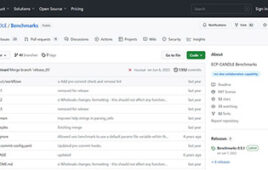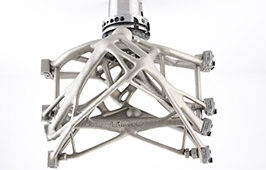
Bette Korber, PhD
R&D Magazine is proud to announce Los Alamos National Laboratory (LANL) theoretical biologist Bette Korber, PhD, as the 2018 Scientist of the Year.
Korber’s innovative HIV “mosaic” vaccine design—assembled from fragments of natural sequences via a computational optimization method—led to a first-in-class preventative HIV vaccine now being tested for efficacy in humans with support from the NIH and the Bill & Melinda Gates Foundation, a milestone few others have reached.
This year marks the 53rd annual Scientist of the Year Award, which recognizes career accomplishments in scientific research and technology spanning nearly all disciplines from physics to medicine to chemistry.
Korber will receive the award at the 2018 R&D 100 Awards black-tie ceremony on Nov. 16, 2018, at the Waldorf Astoria Orlando. The same event will also recognize the 2018 R&D 100 Award winners as well as R&D Magazine’s 2018 Innovator of the Year, The R&D 100 Awards have served as the most prestigious innovation awards program for the past 55 years, honoring great R&D pioneers and their revolutionary ideas in science and technology. A full feature on Korber’s accomplishments will be featured in the October 2018 issue of R&D Magazine.
“We selected Bette as our 2018 Scientist of the Year to recognize not only her groundbreaking contribution to the mosaic vaccine and the fight against HIV, but also for her continued commitment to trying new and innovative scientific approaches,” said Bea Riemschneider, Editorial Director, R&D Magazine. “As both an expert in computational biology and immunology, Bette is also uniquely positioned to try truly interdisciplinary approaches, and with her work she encourages others to do so, something to be celebrated in R&D.”
Following the data
Korber is responsible for managing and building LANL’s HIV Database, which today has over 800,000 sequences of the HIV virus from around the world.
Shortly after she joined LANL in 1991, Korber founded the companion HIV Molecular Immunology Database, and the two databases were coupled, giving researchers the ability to study the relationship between an immune response and HIV.
It was through those databases that Korber first began to understand the potential of a mosaic vaccine design.
Typically, vaccines are designed to stimulate an immune response using one antigen or virus that is specifically targeted. However, because HIV is so variable between different individuals, the immune response the vaccine triggers must be able to interact with many different viruses.
Korber and her team worked to design the database to identity epitopes—bits of the virus that the immune system can recognize—and evaluate the evidence for the strength of each epitope. Through this work, Korber discovered that HIV is packed with epitopes, a finding that directly led to the creation of the mosaic vaccine approach.
Korber and her team looked at virus sequences from all over the world, and using computer optimization, determined which few sequences would provide the optimal coverage of global HIV viruses. The computer then created approximations of those sequences.
Surprisingly, Korber’s idea was not initially well received. In fact, she was denied several of the first grants she applied for because the approach was so different than what had been done before.
Eventually, she was able to secure funding to pay for the computational support she needed to create the mosaic via an internal LANL grant. She then reached out to several experimentalist colleagues to help turn the concept into an actual vaccine that used a strain of a commoncold virus— engineered so that it does not cause illness— to deliver the mosaic antigens Korber had computationally designed.
The National Institutes of Health (NIH) launched a large clinical trial in November 2017 to assess whether the mosaic HIV vaccine regimen is safe and able to prevent HIV infection in humans. The study is sponsored by Janssen Vaccines & Prevention, B.V., part of the Janssen Pharmaceutical Companies of Johnson & Johnson, with co-funding from two primary partners, the Bill & Melinda Gates Foundation and NIH’s National Institute of Allergy and Infectious Diseases.
The new Phase IIb proof-of-concept study, called Imbokodo, aims to enroll 2,600 HIV-negative women in sub-Saharan Africa. The first Imbokodo participants received vaccinations at clinical research sites in South Africa, followed by participants in Malawi, Mozambique, Zambia, and Zimbabwe. Participants will be followed for at least two years.
Although Korber herself has stepped away from the clinical trial portion of this research, she is still closely watching its progress and serves as an advisor for the project. She continues to work mainly in HIV vaccine optimization, focusing on approaches both related and unrelated to the mosaic concept.
About the R&D 100 Conference and R&D 100 Awards
In 2015, the R&D 100 Conference was launched as an educational event that both celebrates the historic R&D 100 Awards and provides an educational opportunity that is unique for the R&D community. The R&D 100 Conference features multi-disciplinary General Sessions specially geared for today’s R&D leaders—and up-and-coming leaders—to help them tackle the most important challenges facing the R&D community right now. The R&D 100 Awards have served as the most prestigious innovations awards program in research and development for the past 56 years, honoring pioneers in science and technology. The 2018 R&D 100 Awards will be presented at the R&D 100 Awards Gala event on the evening of Nov. 16 in Orlando, Florida.
Together, the 2018 R&D 100 Awards Gala and the 2018 R&D 100 Conference explore significant strides in R&D, offering an enriching experience for R&D professionals of all levels and specialties. For registration and conference details, please visit: www.rd100conference.com.
About Advantage Business Marketing
The R&D 100 Conference, R&D 100 Awards and R&D Magazine are brought to you by Advantage Business Marketing.
Established in 2006, Advantage Business Marketing helps more than one million innovators at science, design engineering and manufacturing companies discover and procure new technologies that give them a competitive advantage. The team provides measurable marketing solutions delivering the news, trends and analysis needed for business success. Advantage leverages proprietary behavioral-data intelligence to strengthen brand awareness, provide thought leadership, drive traffic and deliver qualified leads.




